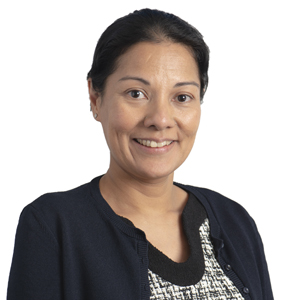PRI upgrades Australasian presence in Asian push
The United Nations’ Principles for Responsible Investment, the global organisation representing about 3,300 pension funds and fund managers, has upgraded its presence in Australia with the appointment of a head of Australia and New Zealand.
Sheela Veerappan was appointed to the vacant role in October, after having joined PRI in 2019 as a relationship manager responsible for Australasia. The organisation is currently looking for another relationship manager to fill her old position.
Sydney-based Veerappan reports to Matthew McAdam, the Melbourne-based director of Asia Pacific, who joined the organisation in 2012 in a communications role and headed up Australasia from 2017. He took on the Asia Pacific responsibility in early 2019. Australia and New Zealand currently account for nearly 200 of the signatories to PRI.
Veerappan said last week (October 15) that Asia was the next growth frontier for PRI, which is based in London and headed by Australian Fiona Reynolds, the former chief executive of AIST, since 2013. PRI has a three-person office on the mainland in China and a representative office in Hong Kong.
Veerappan has had a long career advising institutional asset owners, firstly at Mercer Investment Consulting in Sydney and then Russell Investments in Singapore, followed by a two-year stint at Willis Towers Watson back in Sydney. It was at Mercer as a junior investment analyst that she was given the opportunity to join the small-but-growing responsible investment team, led by Helga Birgden, now the head of ESG for Mercer globally, based in London.
“Helga was very influential in steering my career in that [ESG] direction,” Veerappan said. “At the time, responsible investing was thought to be synonymous with ethical investing, which tended to have a non-financial element to it. The managers and funds in the space tended to rely on negative screens. That’s where my passion for ESG came from and continued at Russell in Singapore.”
The issue with Singapore, where she worked for four years starting in 2011, and the rest of Asia for that matter, was that “it was difficult to fly the ESG flag there” at that time, due to very little interest from either the pension schemes or managers. “Since then there has been a 360-degree turnaround, with green finance being of particular interest in several countries, especially China,” she said.
Green finance is being promoted strongly through several policies initiated by the Chinese Government, whereas it tends to remain a fringe part of the ESG picture in most other countries, including Australia. Australian-domiciled fixed income funds which have a formal ESG bent are vastly outnumbered by equity funds of a similar nature. Australia has a few state government-initiated “green bonds” but these are small raisings and usually designed for a particular purpose in impact investing.
The Australian banks, still the main lenders in corporate and resource development, have largely resisted the trend to be influenced by ESG principles. According to the not-for-profit Market Forces organisation, 11 banks operating in Australia have made substantial loans to fossil fuel producers in the past six years, totalling about $49 billion, including $5.26 billion loaned by the Bank of China.
– G.B.











